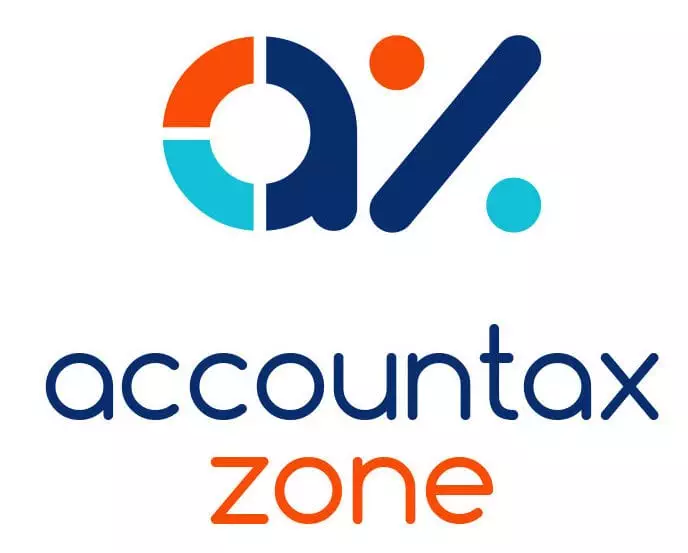When you’re growing a business, one of the biggest financial management decisions you’ll face is: should I keep bookkeeping in-house or outsource it to professionals?
Both options have clear pros and cons. In this guide, we’ll break down the differences between outsourced bookkeeping vs in-house, what each means for small and medium-sized businesses in London, and how to choose the best fit for your stage of growth.
What Is In-House Bookkeeping?
In-house bookkeeping means hiring a staff member (or team) who works directly for your business. They may use accounting software like Xero or QuickBooks, but they’re employed and managed by you.
Pros of In-House Bookkeeping
- Control – You have a bookkeeper on-site, available during office hours.
- Tailored processes – They work the way your business prefers.
- Immediate access – Questions answered quickly since they’re part of the team.
Cons of In-House Bookkeeping
- High cost – Salaries in London often range £28k–£35k+, plus National Insurance, pensions, and training.
- Limited expertise – One person may not know VAT, payroll, and tax planning in depth.
- Scalability issues – When your business grows, one bookkeeper may not be enough.
- Recruitment challenges – Hiring, training, and retaining staff adds admin.
Example: A Hertfordshire-based construction firm hired a full-time bookkeeper but still needed external accountants for VAT and payroll, doubling their costs.
What Is Outsourced Bookkeeping?
Outsourced bookkeeping means hiring an external accounting firm like AccounTax Zone to manage your financial records. It’s usually done through cloud-based systems, giving you access to a team of professionals without the overhead of hiring in-house.
Pros of Outsourced Bookkeeping
- Cost-effective – Monthly packages usually range £200–£900, depending on size.
- Expertise on demand – Access to specialists in VAT, payroll, and tax planning.
- Scalable – Easily add services like management accounts or Virtual Finance Director support.
- Technology included – Cloud accounting setup and maintenance is often part of the package.
- Fewer headaches – No recruitment, no training, no sick leave cover.
Cons of Outsourced Bookkeeping
- Less physical presence – You don’t have someone in the office daily.
- Process adjustment – You may need to adapt slightly to your provider’s systems.
Example: A Stratford e-commerce business outsourced bookkeeping and gained real-time dashboards without having to hire staff—saving both money and office space.
Cost Comparison: Outsourced Bookkeeping vs In-House
| Factor | In-House Bookkeeper | Outsourced Bookkeeping (AccounTax Zone) |
| Salary | £28k–£35k+ annually | £2.5k – £24k annually, depending on business size |
| Overheads | NI, pensions, holiday cover, training | Included in package |
| Expertise | General bookkeeping only | Access to wider finance team |
| Scalability | Hard to scale quickly | Add services as you grow |
| Technology | Extra subscription costs | Cloud software included |
| Flexibility | Bound by staff hours | 24/7 cloud access, flexible support |
Insight: For small businesses, outsourcing often costs less than one month of an in-house bookkeeper’s salary per year.
Which Option Fits Your Business?
- Choose In-House If…
- You have complex, high-volume transactions that require daily physical oversight.
- You want full-time access to someone in your office.
- Choose Outsourced If…
- You want expert support at a fraction of the cost.
- You’re a growing London SME needing flexibility.
- You’d rather focus on customers than admin.
The Hybrid Approach
Some businesses combine both: a junior admin handles simple data entry, while outsourced professionals manage reconciliations, VAT, and reporting. This offers daily control without sacrificing expertise.
Why Many London SMEs Choose Outsourced Bookkeeping
At AccounTax Zone, we’ve seen countless businesses make the switch from in-house to outsourced bookkeeping because:
- They were tired of recruitment costs and staff turnover.
- They needed more expertise than one bookkeeper could provide.
- They wanted clarity and confidence through cloud-based dashboards.
You may:
– Explore our Outsourced Bookkeeping Services
– See all Services or Contact Us
– Book a Meeting Today
FAQs: Outsourced vs In-House Bookkeeping
Is outsourcing always cheaper than hiring in-house?
For most small businesses, yes. Outsourcing often costs less than half of an in-house salary.
Can I switch from in-house to outsourced without losing data?
Yes. Cloud migration ensures a smooth transition.
What if I still want someone to handle paperwork daily?
Many firms use a hybrid model—basic tasks in-house, specialist support outsourced.
Do outsourced services include tax planning?
Yes, AccounTax Zone combines bookkeeping with proactive tax advice.
Can I scale outsourced services as my business grows?
Absolutely—outsourced bookkeeping is flexible and grows with you.
Conclusion
There’s no one-size-fits-all answer to the outsourced bookkeeping vs in-house debate. It depends on your business size, budget, and priorities.
But for many London SMEs, outsourcing delivers the best of both worlds: expert support, lower costs, and the flexibility to scale.
At AccounTax Zone, we’ve helped businesses across Woolwich, Bromley, Stratford, and beyond streamline their finances with outsourced bookkeeping that feels like an in-house team—without the overhead.
Book a Meeting Today to explore how we can help your business choose the smarter path.










